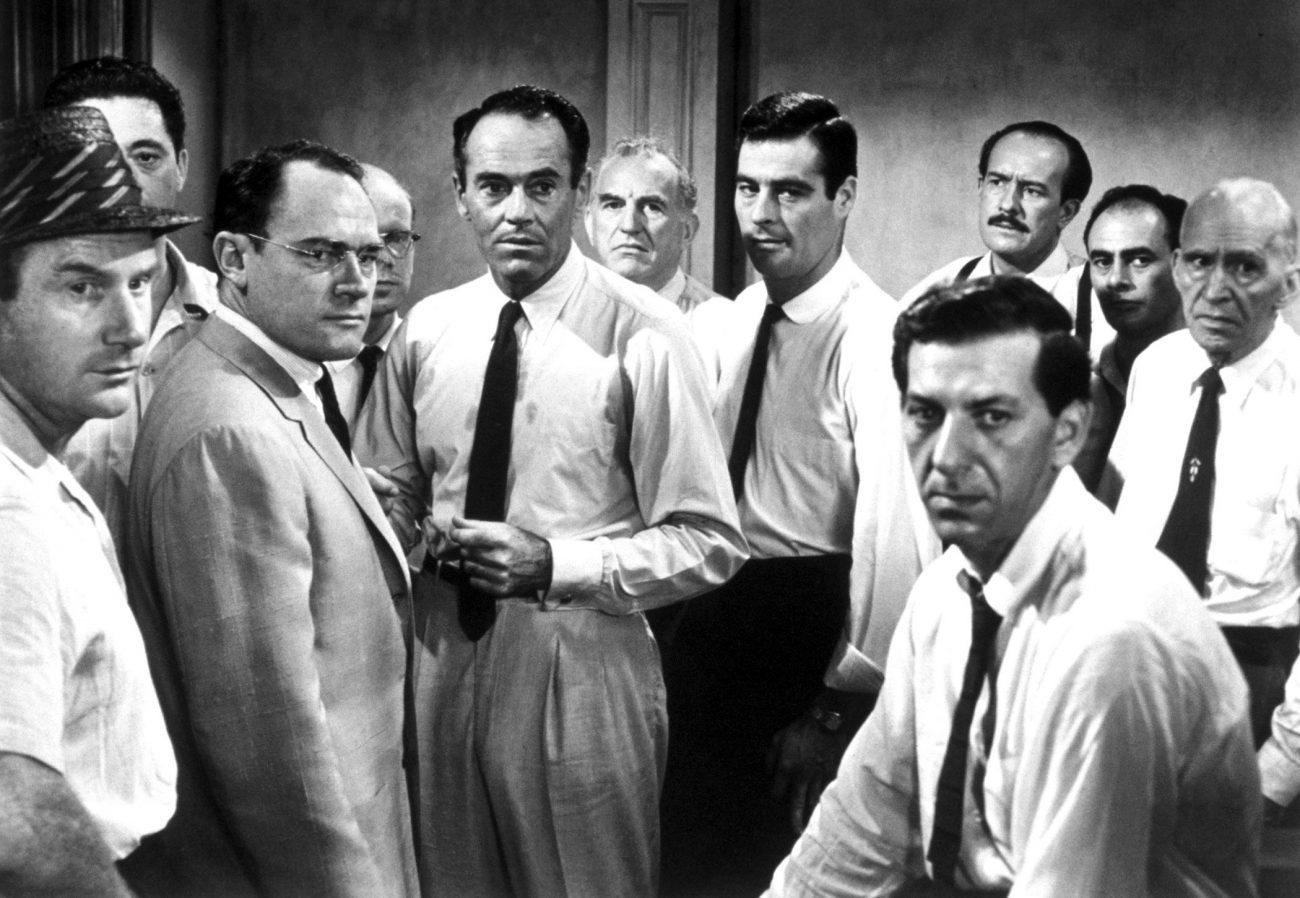‘12 Angry Men‘ is one of its kind. A drama about the backroom proceedings of a jury, which is burdened with responsibility of reaching a unanimous decision on the fate of a teenager, supposedly accused of killing his father. This movie explores that side of a trial, which we seldom see in court-room dramas.
Released in 1957 and directed by Sidney Lumet, this eternal movie is recommended as a must watch for movie buffs and layman alike! Originally adapted from a play written by Reginald Rose, this story has been recounted in time in numerous languages and forms of expressions. It touches through the aspects of humanity in an extensive yet impenetrable manner; responsibility, decision-making, thought processing, reasonable doubt and most of all, the value of human life.
A teenager living in the slums of Manhattan is accused of killing his father with a switch blade. The movie starts on the steps of courthouse, where in one of the courtroom, judge asks the jury to decide whether the defendant is guilty or not. He specifically states that, in case, if the jury finds the accused guilty, the only verdict would be a death sentence. And if they have any reasonable doubt regarding the crime, they must find him not guilty of the crime. And the jury retires into a room to decide the fate of the boy.
The jury is in court for six days, hearing the arguments of both the sides and except one, all of them think the boy is guilty. They start by taking an initial vote, in which juror no. 8, an architect, votes against the rest and justifies himself by saying that he a reasonable doubt about the boy’s guilt. None of the other jurors want to prolong the discussion and explicitly express their discontent about it.
The architect played by Henry Fonda, is a patient man. Rather than forcing his thoughts on others, he focuses on talking about it with the other jurors. Determined on making things right, he drives the wedge of a reasonable doubt within their minds. He keeps the conversation alive, putting tiny logical arguments, which forces the jurors to untwist the facts and arrange them in an organized manner.
What follows is order from chaos, as they slowly begin to understand the possibility of a reasonable doubt. A few of the difficult jurors, swayed by their personal prejudice and esteem, can’t help themselves to change their judgement. But the architect persists, and succeeds slowly but steadily in planting a reasonable doubt in each of the jurors, with logical and constructive explanations. He gets some help from his neighbor juror, the old man, whose exquisite observations of the witnesses’ also plays an important role in convincing one of the adamant juror.
One of the interesting facts about this movie is that, it upholds a valuable tenet of the judicial system – “It is better that ten guilty persons escape than that one innocent suffer”. And can you imagine, what would have happened if the architect was not present in that jury, a guilty verdict would have been passed and maybe an innocent boy would have gone to the chair. To deliver justice, is indeed an act of thoughtfulness, patience and responsibility. And ’12 Angry Men’ epitomizes it !
The movie finally goes full circle, as the final scenes of the movie end on the steps of the courthouse. And I leave you to visually experience this movie and expect you to express your amazing thoughts about it !

